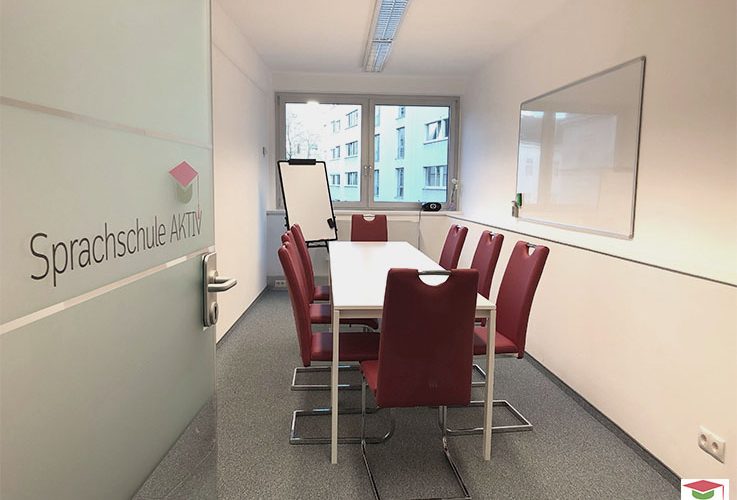The personal pronoun – learn German Grammar
Pronouns are words which closely describe and refer to a noun. Personal pronouns put emphasis on a noun which has already been named in a context and replace it. They’re important words and have to be declined in German grammar.
What are pronouns and personal pronouns?
In a German course, pronouns are provided for all ability levels. Personal pronouns are also used to talk to/about someone or oneself. This group of words are written lower case.
Examples:
Das Kind spielt im Garten. Es spielt gern mit dem Hund im Garten. – The child plays in the garden. It likes to play with the dog in the garden. ‘It’ replaces the child.
Der Rasen ist grün. Er ist auch sauber. – The lawn is green. It is also clean. The ‘it’ means the lawn.
Ich gebe Paul den Brief. Er bringt ihn gleich zur Post. – I give Paul the letter. He takes it to the post office immediately. In this case, ‘it’ replaces both Paul and the letter.
When do personal pronouns occur?
There are personal pronouns in both the singular and plural for each person and for each case (also in nominative, accusative, dative and genitive. Look at the following examples, which describe this in more detail.
the individual cases and declensions of the personal pronouns
With the nominative, with speaker answers the question: ‘who’?
Example:
Wer hat den Kuchen gegessen? Who ate the cake?
Sie hat den Kuchen gegessen. She ate the cake.
The pronouns of the third person singular replace the pre-mentioned nouns and are often used so that the context has to be known. Instead of using the name (of the noun), we replace this with the pronoun.
Examples:
Ich habe einen Bruder. Er ist 4 Jahre jünger als ich. I have a brother. He is 4 years younger than me.
Ich habe einen Hund. Er ist sehr niedlich. I have a dog. He is very cute
We use the first person when we talk about ourselves.
Ich habe Durst. – I’m thirsty.
Mir ist warm. – I’m warm.
Wir wollen wandern. – We want to go walking.
Uns ist langweilig. – We are bored.
In the nominative case personal pronouns are as follows: ich, du, er/sie/es, wir, ihr, sie.
‘Let us remember him’ – the rare beauty of personal pronouns in the genitive case.
The use of personal pronouns in the genitive case is rare. However, it is so nice that it should be mentioned, for the sake of completeness: meiner, deiner, einer/ihrer/seiner, unser, euer, ihrer.
The usage is fairly outdated, and there are only few verbs which take the genitive case.
Einer Sache bedürfen – To need something
Einer Sache oder einer Person gedenken – to remember something
Jemanden einer Sache anklagen – to accuse someone of something
The personal pronoun in the dative
The dative is used if you can ask about something with ‘whom’. Personal pronouns in the dative indicate belonging and possession, but also the question of feelings or sensations. These are the declinations of the personal pronouns of the dative: mir, dir, ihm/ihr/ihm, uns, euch, ihnen.
Here are a few examples of how personal pronouns can be used in the dative:
Wem gehört diese Tasche? Who does this bag belong to?
Sie gehört ihm. – It belongs to him.
Wem hat Sabine die Uhr gegeben? – Who gave Sabine the watch?
Sabine hat mir die Uhr gegeben. – Sabine gave me the watch.
The personal pronoun in the accusative and its uses
You ask about the accusative pronoun with ‘whom’? There are verbs and prepositions that the personal pronoun requires in the dative, such as for example, doing something for someone:
- “I cleaned up for you.”
- “Who did you clean up for?”
- “For you.”
The personal pronouns in the accusative are as follows: mich, dich, ihn/sie/es, uns, euch, sie.
Personal pronouns can also stand for impersonal forms:
Es regnet. – It rains./it is raining.
Es ist kalt. – It is cold.
The word ‘es’ replaces the facts/circumstances.
Practice the German Pronoun – Exercise
Fill in the correct personal pronouns
- a) Dein Bruder braucht Hilfe. Kannst du _________ (deinem Bruder) bitte mit den Hausaufgaben helfen?
- b) Hast du schon den Turm gesehen? Geh mal zur Seite! Ich sehe _________ (den Turm) nicht!
- c) Magst du nächste Woche ins Kino? Wann hast _________ Zeit?
- d) Ich bin mir _________ Sache nicht ganz sicher:
- e) Ich habe versucht, das Problem zu lösen. Leider gibt _________ dafür keine Lösung.

Answers: a) ihm; b) ihn; c) du; d) einer; e) es.
Learn the German pronouns in the group
Learning a language is a lot easier when you learn with others. We can help you learn German online, but you can also book a language course for each level. Our courses are led by competent and experienced teachers who teach you the most important grammatical elements through a perfect combination of theory and practice. You’ll learn the personal pronouns even better through fun and with friendly people!













